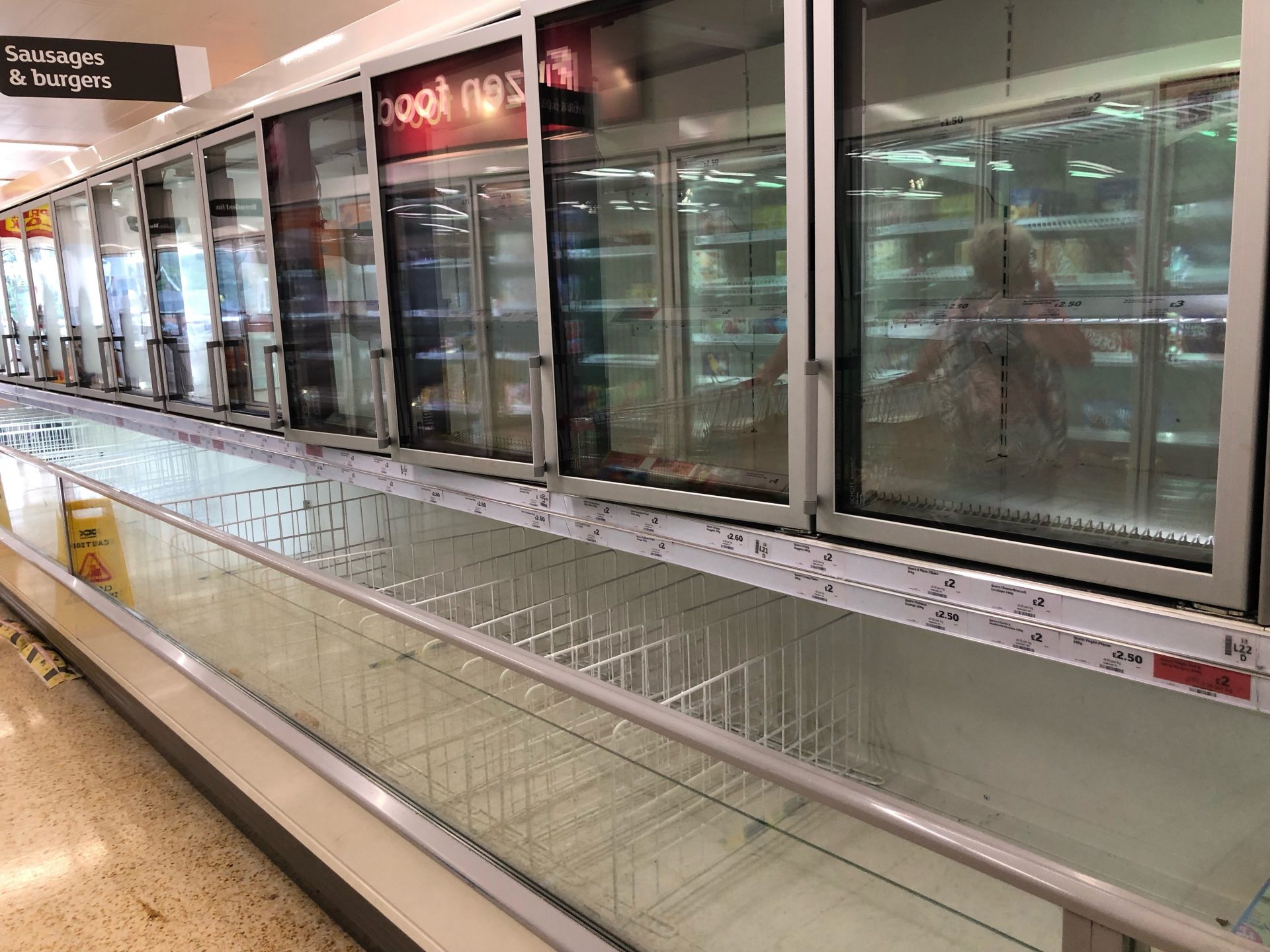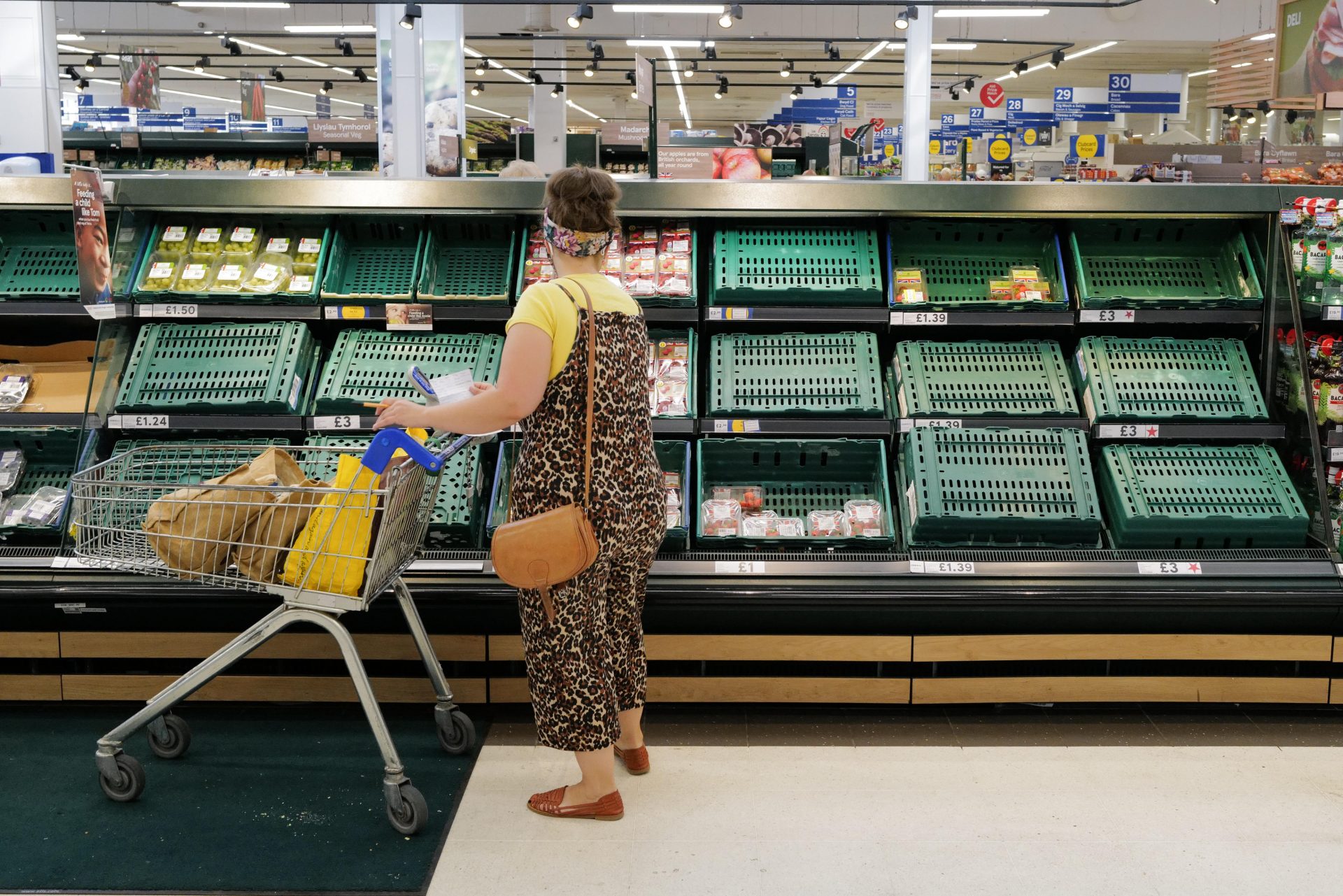First time around we blamed it on the pandemic, then on the pingdemic. But there can be no doubt that Brexit is a primary cause of the empty vegetable crates and unstocked shelves in supermarkets this week.
It’s not just that fruit and vegetable pickers from the rest of Europe are no longer able work here. Almost everything we buy is delivered by trucks, and lorry drivers are in very short supply because of new immigration rules.
Suddenly it’s a lorry drivers’ market, with salaries of over £50,000 a year being dangled in front of anyone with an HGV licence and a British passport.
The Home Office is so far resisting calls to relax the rules and grant temporary visas to EU lorry drivers. Meanwhile, a trip to the shops has a melancholic feel. Where once was plenty there are now conspicuous absences. Grey plastic shelving no longer hidden by produce looks sad, grubby, and cheap.
The existential philosopher Jean-Paul Sartre was a connoisseur of absence.
He called it “the non-being at the heart of being”. His best description of it, like many passages in his existential classic Being and Nothingness, is of a scene in a café. Influenced by Edmund Husserl, Sartre wanted to describe phenomena, the richness of conscious human experience, without introducing presuppositions.
Sartre has an appointment with his friend Pierre. He is to meet him there at four o’clock but arrives 15 minutes late. Pierre, who is always punctual, is nowhere to be seen. The café in contrast is a “fullness of being” with tables, booths, voices, rattling saucers, and clouds of cigarette smoke (this is the 1940s). But no sign of Pierre. “Il n’est pas là.” Yet everywhere Sartre looks for his friend he perceives his absence, he feels it.
Sartre’s example reveals how consciousness brings some things to the fore and makes others background, but also how we can experience what is not there as much as or more than what is. Other people, their conversations, their coffee cups, their comings and goings, are all just a stage set in front of which he expects to see Pierre.
Sartre moves through the café full of expectation. Were Pierre to appear, then he would be the full focus of Sartre’s attention. But Pierre’s non-presence ‘haunts’ the café.
As Sartre points out, there are any number of other people who aren’t in the café either. The poet Paul Valéry isn’t in the café, nor for that matter is the Duke of Wellington. But that is an intellectual take, not how it seems. Sartre’s felt experience of the café is of the lack of Pierre. Where is Pierre? His absence is a real absence.
So too the vegetables missing from those supermarket shelves. So too the absent lorry drivers from Eastern Europe. So too the lost possibility of frictionless travel, cultural and scientific exchange, and work in Europe. Where are they all? What happened? Shouldn’t they be there?
Like Sartre entering the café we had our expectations which have been thwarted by a disconcerting sense of nothingness. We experience nothing there as if it were a something that could and should have been there.
Is it too far-fetched to see those empty supermarket shelves, and the accompanying consciousness of absence, as a metaphor for the consequences of Brexit? Now there are just gaps, deeply felt nothingness, and a poignant sense of lost possibility. Something that should be there isn’t there anymore and this lack feels wrong, and not just because of the inconvenience of a courgette shortage, or having to shop around to find your favourite beer.
We can adapt to this if we have to. Human beings are very good at getting used to things, particularly gradual change. Stiff upper lip and all that. These are not very serious problems compared with the worst kinds of absences: the absence of water, food, clothing, medicines, and shelter, or the absences of people whom we love who have died.
We know that the intensity of a sense of loss can diminish with time, as can the intensity of grief. Perhaps sparse shelves will become the new normal and shops will find discreet ways of hiding what’s happening. Maybe we’ll acclimatise.
Shoppers may adjust their expectations about what they will find and will be happy to find anything. But at the moment, a trip to the supermarket is haunted with a sense of absence. If the missing foodstuff shows up again it will be very welcome.



